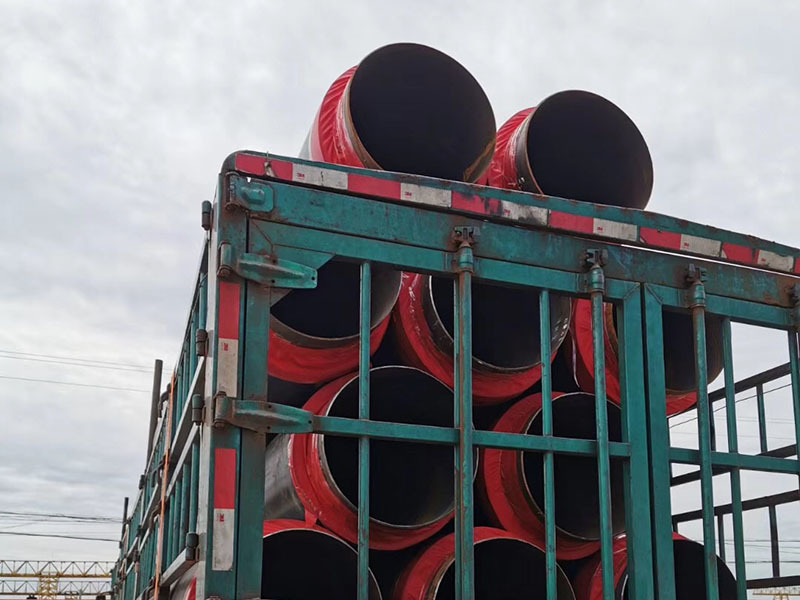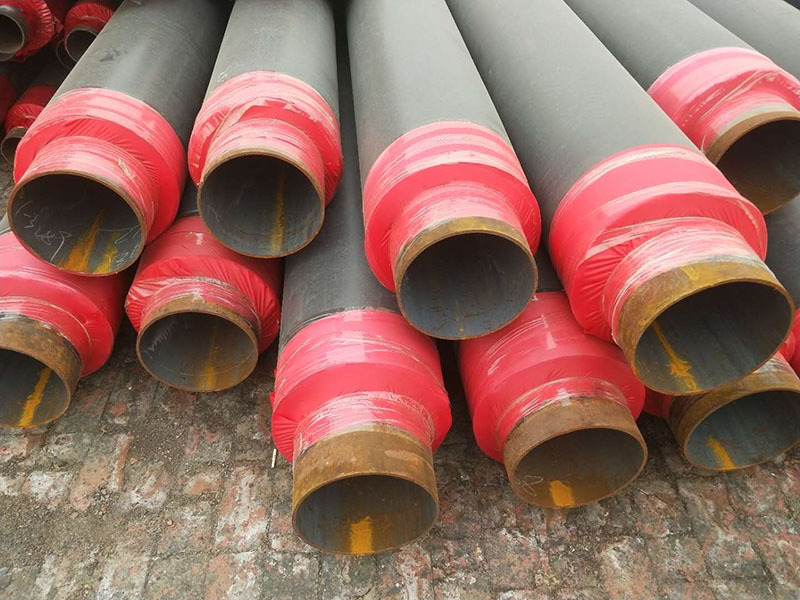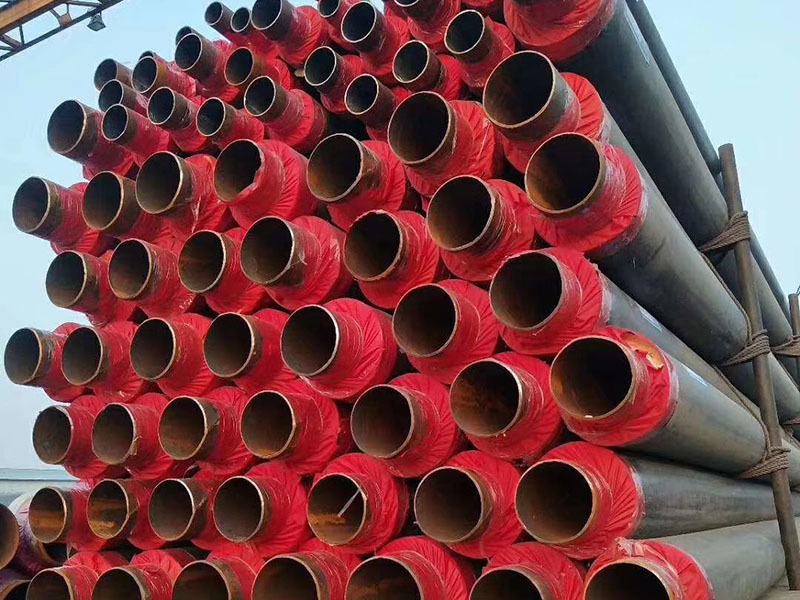Elevate Your Construction Standards with TPEP Steel Pipe: The Ultimate Guide to Quality and Durability
Release time:
2025-04-13
Elevate Your Construction Standards with TPEP Steel Pipe Table of Contents 1. Introduction to TPEP Steel Pipes 2. Understanding TPEP Technology 3. Benefits of Using TPEP Steel Pipes in Construction 3.1 Durability and Strength 3.2 Corrosion Resistance 3.3 Cost-Effectiveness 3.4 Lightweight Design 4. Applications of TPEP Steel Pipes 4.1 Urban Infrastructure 4.2 Oil and Gas Indu
Elevate Your Construction Standards with TPEP Steel Pipe
Table of Contents
1. Introduction to TPEP Steel Pipes
2. Understanding TPEP Technology
3. Benefits of Using TPEP Steel Pipes in Construction
3.1 Durability and Strength
3.2 Corrosion Resistance
3.3 Cost-Effectiveness
3.4 Lightweight Design
4. Applications of TPEP Steel Pipes
4.1 Urban Infrastructure
4.2 Oil and Gas Industry
4.3 Water Supply Systems
5. Installation Guidelines for TPEP Steel Pipes
6. Comparing TPEP Steel Pipes with Other Pipe Materials
6.1 TPEP vs. PVC Pipes
6.2 TPEP vs. Copper Pipes
7. Maintenance Tips for TPEP Steel Pipes
8. Frequently Asked Questions (FAQs)
9. Conclusion
1. Introduction to TPEP Steel Pipes
In the construction industry, the choice of materials can significantly impact the quality, safety, and longevity of structures. Among various options, **TPEP (Thermal Plastic Elasto Polymer) steel pipes** have emerged as a reliable solution, gaining traction due to their advanced properties. This article delves into the characteristics, benefits, and applications of TPEP steel pipes, demonstrating why they are a superior choice for modern construction.
2. Understanding TPEP Technology
TPEP steel pipes are engineered by combining the strength of steel with the flexibility and durability of thermal plastic elastomers. This unique composition enhances the performance of traditional steel pipes, resulting in a product that is both resilient and adaptable. The manufacturing process involves advanced techniques that ensure uniformity and consistency, making TPEP steel pipes a trustworthy choice for various applications.
3. Benefits of Using TPEP Steel Pipes in Construction
3.1 Durability and Strength
One of the primary advantages of TPEP steel pipes is their exceptional durability. Unlike conventional pipes, TPEP steel pipes can withstand harsh environmental conditions, including extreme temperatures and heavy loads. Their robust construction ensures that they remain intact even under stress, making them ideal for high-demand applications.
3.2 Corrosion Resistance
Corrosion is a significant concern in construction, particularly for pipes used in water and gas supply systems. TPEP steel pipes are designed with corrosion-resistant properties, significantly extending their lifespan. This resistance reduces the need for frequent replacements and maintenance, translating to lower long-term costs for construction projects.
3.3 Cost-Effectiveness
Investing in TPEP steel pipes can lead to substantial cost savings over time. Their durability and resistance to corrosion mean fewer repairs and replacements, allowing construction companies to allocate resources more efficiently. Additionally, TPEP steel pipes can be installed quickly due to their lightweight nature, further reducing labor costs.
3.4 Lightweight Design
The lightweight design of TPEP steel pipes makes them easier to handle and install. This feature not only speeds up the construction process but also minimizes the risk of worker injuries associated with lifting heavy materials. The ease of installation allows for more flexibility in project timelines and budgeting.
4. Applications of TPEP Steel Pipes
4.1 Urban Infrastructure
TPEP steel pipes are increasingly being used for urban infrastructure projects, including roads, bridges, and drainage systems. Their ability to withstand varying environmental conditions makes them suitable for urban settings.
4.2 Oil and Gas Industry
In the oil and gas sector, TPEP steel pipes are utilized for their strength and corrosion resistance. They are critical in transporting crude oil, natural gas, and other fluids safely and efficiently.
4.3 Water Supply Systems
TPEP steel pipes are an excellent choice for water supply systems due to their non-reactive properties. They ensure clean water delivery without contamination, making them a preferred option for municipalities and construction companies alike.
5. Installation Guidelines for TPEP Steel Pipes
Proper installation is vital to maximizing the benefits of TPEP steel pipes. Here are some guidelines to consider:
- **Site Preparation**: Ensure that the installation site is clean, dry, and free of debris.
- **Handling**: Use appropriate equipment to lift and move pipes to avoid damage.
- **Jointing**: Follow manufacturer guidelines for joining pipes, ensuring that all connections are secure.
- **Testing**: Conduct pressure tests after installation to detect any leaks before putting the system into operation.
6. Comparing TPEP Steel Pipes with Other Pipe Materials
6.1 TPEP vs. PVC Pipes
While PVC pipes are popular due to their low cost and easy installation, TPEP steel pipes offer superior durability and resistance to temperature fluctuations. This makes TPEP a more reliable choice for critical applications.
6.2 TPEP vs. Copper Pipes
Copper pipes are known for their longevity and corrosion resistance; however, they are more expensive and heavier than TPEP steel pipes. TPEP combines the best of both worlds—cost-effectiveness and durability.
7. Maintenance Tips for TPEP Steel Pipes
To ensure the longevity of TPEP steel pipes, regular maintenance is essential. Here are a few tips:
- **Routine Inspections**: Conduct periodic inspections to check for any signs of wear or damage.
- **Cleaning**: Regularly clean the pipes to prevent blockages and maintain optimal flow.
- **Repair**: Address any issues immediately to prevent further damage and ensure continued functionality.
8. Frequently Asked Questions (FAQs)
1. What are TPEP steel pipes made from?
TPEP steel pipes are made from a combination of steel and thermal plastic elastomers, providing superior strength and flexibility.
2. How do TPEP steel pipes compare to traditional steel pipes?
TPEP steel pipes offer enhanced corrosion resistance, lightweight design, and lower maintenance costs compared to traditional steel pipes.
3. Can TPEP steel pipes be used for both hot and cold water?
Yes, TPEP steel pipes are suitable for both hot and cold water applications, thanks to their robust thermal resistance.
4. Are TPEP steel pipes environmentally friendly?
TPEP steel pipes are designed to minimize environmental impact by reducing the need for frequent replacements and maintenance.
5. What is the lifespan of TPEP steel pipes?
With proper installation and maintenance, TPEP steel pipes can last for several decades, making them a long-term investment for construction projects.
9. Conclusion
In today's competitive construction landscape, choosing the right materials is crucial for achieving quality and sustainability. **TPEP steel pipes** stand out as an excellent choice, blending strength, durability, and cost-effectiveness. Their ability to withstand challenging conditions while offering ease of installation makes them an ideal solution for various applications, from urban infrastructure to industrial projects. By opting for TPEP steel pipes, construction professionals can elevate their standards and ensure the success of their projects.
keyword:
Related News






